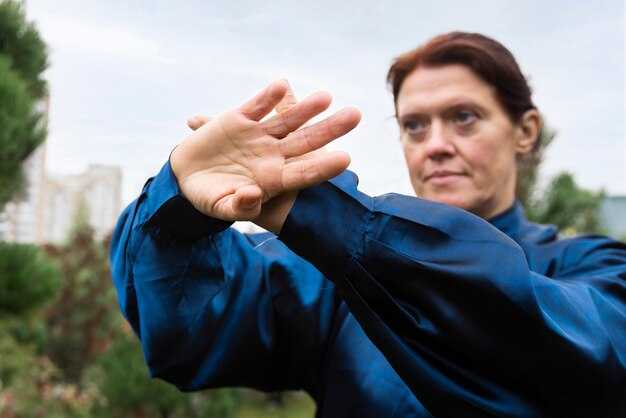Your thoughts can deceive you when you fall headlong for a distant, solitary person who bluntly declares they do not want a committed relationship. That person exists only as a voice through a screen or as pixels on a display — never beside you, never sharing the mundane rhythms of daily life. Such an absence becomes fertile ground for limerent fantasy: the “if only we could be together” daydream that ignores the simple arithmetic of reality, especially when the other person has repeatedly and clearly stated that a partnership will not happen. So who is really avoidant here?
Today’s letter comes from a woman I’ll call Sasha. She writes: Hello Anna, I need your help to understand what’s happening because I feel bewildered and can’t tell whether I’m deceiving myself or trusting my intuition. I’ll mark some parts I want to revisit on a second pass, but here’s Sasha’s story.
About two years ago I met a man through an online course focused on personal growth and trauma recovery. He displayed a dismissive-avoidant attachment style; I believed I had done extensive healing and considered myself an earned-secure. Because two of my past partners were dismissive-avoidant, I learned a lot about that pattern: people who steer clear of closeness, balk at promises, shy away from talking about feelings, and avoid commitment. It’s a spectrum, and the dismissive end has a characteristic shrug of indifference. I had invested emotional effort trying to understand and help my previous partners; the relationships ultimately failed, but I developed compassion for the struggles people with this style face. I thought that if I found a dismissive-avoidant person willing to do the work, we could become securely attached — and I saw this new man as exactly that possibility.
He impressed me with how devoted he was to his own healing. He said he wanted to break intergenerational cycles of trauma and aimed to be a good husband and father someday. We became friends and began long video conversations that lasted for hours; we discussed life goals, values, lifestyle preferences, and how we might raise children. It felt like our priorities were perfectly aligned. I was astonished that someone so compatible could exist and that I might have found them. The problem: we lived in different countries and different continents. He hadn’t been in his home country for a few years; he’d lived where he was now for about four years. He was 32 and I was 39.
A few months in, I told him I had romantic feelings and that I thought we were a great match. Surprisingly, he said he was open to the idea of a romance, despite earlier asserting he disliked long-distance relationships. He seemed to assume I would move to be with him, which I could not do for health reasons. When I explained that moving wasn’t possible, he closed the door on becoming partners and refused to consider relocating himself. I suggested alternatives, but he insisted we remain friends, and I agreed. I genuinely tried to let go of my romantic feelings and reframe our connection as friendship — but, predictably, it didn’t work.
Over time he increased how often he invited me to video calls until we were talking nearly every morning and night for hours. I let him take the lead on initiating contact because he said he needed more space; I accommodated that. We developed deep trust and built a space where we could be vulnerable with each other. I spent hours holding space for him while he cried, revealing wounds he hadn’t shared with anyone else. He told me he had never felt so understood and loved, and sometimes described the feeling as heavenly. Those words made me think he loved me; yet whenever I brought it up he denied it, insisting we’d both agreed to remain friends. His pull toward me, however, seemed intense. We tried to set boundaries and see each other less, but we slipped back into daily hours of conversation — by his initiative. I agreed because being with him felt wonderful.
We had few disagreements, or so I thought, since we seemed to understand each other and use the coping tools we’d both learned to resolve conflicts quickly. I felt freer, accepted, and loved for who I was — and he said the same. He listed qualities I wanted in a partner yet refused to make me a partner. That left me utterly bewildered. He told me he had never been in a romantic relationship, had only once experienced unrequited love, and that before doing his healing work he couldn’t imagine living with a partner because he needed space and independence. Later, after about a year and a half of this push-and-pull — really a persistent pattern of him pulling closer while insisting on friendship — I pointed out that he was behaving like I was his girlfriend. At that point I chose to go no-contact because I couldn’t bear hearing him talk about wanting to date other women and seeking someone who lived nearby.
It’s been six months since we ended our friendship and three months of total no-contact. I still miss him daily and replay the special moments and the peace and joy I felt with him. I remember his words that suggested he loved me, and how he denied it when I asked. I can’t fathom how someone could walk away from something that felt so perfect and then imagine finding another deep connection just because he prefers a partner who lives nearby. After dedicating my life to healing and making relationships work, I never found anything comparable. I tried meeting new men but was disappointed; they behaved in ways I won’t tolerate. I’m looking for a new partner because I can’t waste more time. Please give me perspective: am I deluding myself about his love? I asked him directly for reasons why he wouldn’t be my partner so I could move on, but he refused to answer and became defensive or offended when I pressed. The only clear reason he offered was distance, which to me is surmountable. It feels like wasting a once-in-a-lifetime love, and I feel hopeless. How do I move forward and open up to loving someone new after this? — Sasha.
It’s painful to read that you think this was the best thing that could have happened to you — you need to hope for more than that. You deserve a partner who is physically present, who actively wants to be with you and says so plainly. Less than that is not enough. Some couples make long-distance courtship work, often by quickly agreeing on a timeline and one person moving, or by traveling to be together, but that requires both people to have the exact same intentions. If a long-distance connection stretches on for many months without both people committing to making it real, it’s not a relationship — it’s wishful thinking.
One of your core misreadings was believing you were “healed” and that his only problem was that he needed healing. The pattern in your story shows something else: you became attached to someone who repeatedly told you he was not interested in a romantic partnership, and you poured your devotion into him while he drained you emotionally. Calling that “holding space” with clinical-sounding language can mask what it actually was: you were acting like an emotional sponge, absorbing his pain and investing love where it wasn’t reciprocated. I’m not attacking him as a villain; the important point is that you were limerent — obsessively attached — and you wrapped your hope into psychological jargon to justify staying. That kind of arrangement is not healthy; it’s vampiric in nature.
You continued to give him hours of your time every day even as he said he didn’t want that kind of relationship. You told yourself that his repeated return to you signified love, but you must pay attention to what people say plainly: if someone tells you they don’t want a romantic relationship, that statement matters. Actions are evidence, and his actions — later seeking another relationship — confirm he genuinely wasn’t committed to you romantically. You did the right thing by naming your feelings and asking for clarity; the trouble was getting stuck after he gave you an answer.
I long ago stopped being friends with men when one person had romantic feelings and the other did not. The idea that you can revert to an uncomplicated friendship under those circumstances is usually a myth. Often what happens instead is you become the perfect, no-strings partner for someone avoidant: available online, adoring, giving, and never asking for commitments. That’s what I call “crap fit” — shaping yourself around an unacceptable situation or person. You poured enormous emotional energy into something that wasn’t returned in the way you needed. The shared values you described matter less than the fundamental willingness to be with one another. If a partner refuses to choose you as their person, the rest doesn’t substitute for that core commitment.
When it comes to healing and avoiding this repeating pattern, decide clearly what you need: someone who’s into you (attracted and available), willing to be with you, and who shows this both in words and actions. Be rigorous about romantic boundaries: don’t invest deep emotional energy in someone who hasn’t explicitly declared interest. Make close friendships with women and people who will provide safety and joy without romantic entanglement, and treat casual male friends with more guardedness if that’s your attraction pattern. I’m glad you’ve gone no-contact — take it further, continue the practice, and consider using a structured method (I offer a daily practice) to process the painful thoughts twice daily. That helps many people move through limerent thinking and reclaim their life.
One last note: when someone refuses to explain why they won’t be with you, the reason is often simply that they are not romantically interested. When romantic attraction isn’t there, no amount of compatibility will make the relationship become a partnership. Accepting that fact is the doorway to learning the lesson and not repeating the pattern. If you recognize limerence rising — infatuation that eclipses reality and becomes addictive — call it out early and avoid allowing hope to fuel a damaging loop.
My next letter is from Romy: Dear Crappy Childhood Fairy, I’m trying to salvage an important friendship. I’ve known H for almost ten years. At first he showed romantic interest that never developed; I was extremely avoidant at the time so I ignored his messages and he dropped contact. Later we bumped into each other through shared social circles. I’m extroverted and my work forces me to interact with many kinds of people, so it was easy to strike up conversations and rebuild a friendship with clear boundaries. I’ve been in relationships since then and am now engaged; H knows my partner and we’ve all spent time together. Historically, H might text once every two weeks to ask if I was free to meet up with friends, which felt normal. Occasionally we exchanged deeper updates when family health crises occurred. I’m not very tactile; I don’t hug or touch male friends because I think it could send the wrong message.
But over the last two months H’s texting ramped up. He began sending more frequent notes — “hope your day’s going well,” “hope work is less hectic” — and long messages during work hours. What used to be once every couple of weeks turned into nearly every other day. He’s offered to help with major life events and even offered to cancel plans months ahead to be available, and his apologies and persistence felt manipulative at times. I’ve grown uncomfortable and some friends suggested H might be in love with me. I learned about limerence and saw it might be triggered by my engagement. I’m cutting back on contact, making interactions boring, and limiting in-person time. In retrospect, this has been building for longer than I realized. H used to mention women he was talking to, but lately he doesn’t mention that. I don’t want him pining for me while I’m engaged; he’s a good guy who deserves to find someone else. We’re not compatible: I value independence and constant texting smothers me. I also dread that I’m overanalyzing and inventing limerence everywhere. If I am the liant object, can this friendship be saved? I feel like I hurt him no matter what I do, and I don’t want to hurt my friend. My fiancé knows and is worried too. Thanks for your time. — Romy.
Romy, I can help but the answer you likely dread is the right one: maintaining this friendship as it stands is unkind to both of you. If H has developed limerence — an obsessive fixation that functions like a drug by depending on hope and uncertainty — staying in frequent contact will keep activating that pattern. If I were speaking to him, I would be blunt: cut contact. He may care for you and enjoy your company, but his ongoing attachment is stealing his ability to find real love. Limerence hijacks attention and becomes an addictive chase for a fix; the “fix” is hope — the belief that one day the object of limerence will reciprocate. People stuck in it rarely make direct declarations (like “I’m in love with you” before you marry someone else) because they already sense the likely answer and can’t handle the truth, so they keep clinging to hope instead.
Because you are engaged, preserving emotional clarity is crucial. Entanglement with someone harbouring romantic feelings for you can sap your availability for your relationship and your future marriage. The healthiest thing, especially given how entrenched H’s feelings seem to be after a decade, is to end contact in a kind but definite way. You can tell him you value the friendship but cannot continue spending time together because there is romantic energy present that’s not healthy for either of you. This is essentially a breakup of a friendship, and though it’s painful, you’ll likely find relief and clarity once it’s done. Also do a quick audit of other opposite-sex friendships: if any have a similar dynamic, consider addressing them now. Sometimes one person repeatedly becomes a liant object for others, which creates a serial pattern of harm. Keep relationships honest, straightforward, and without hidden agendas — that protects everyone.
My next letter comes from a man I’ll call Carter. Hi Anna, I’m 35 and I’ve been with my wife about 15 years. When my son was born I learned about male postpartum depression the hard way; I didn’t expect how it affected me and I wasn’t prepared for the mental strain of becoming a father. Issues from my past, especially my relationship with an alcoholic father, resurfaced. While my current relationship with my father is good, our earlier years were troubled and I doubt he fully understands the damage his alcoholism caused. Shortly after my son was born I had an emotional affair with a colleague. I was depressed, craving intimacy, and she told me what I wanted to hear. I hated becoming a father at the time, and in that moment she made me feel seen and valued. In hindsight she abused that closeness and crossed boundaries. Through counseling I learned much about myself and have worked on these areas ever since. After that episode I avoided friendships — particularly female friendships — for years.
Things are better now: my marriage has improved, I’ve adopted healthier habits, and I’ve made new friends of both genders. I pushed myself to grow — I learned to swim as an adult, which felt transformative. During this process I befriended my female instructor and over months we grew close. Now I feel intensely for her; I recognize these intrusive, persistent thoughts as limerence. I want this to remain a friendship, yet I’m plagued by uninvited thoughts and worry. When we’re together, our conversations are warm and deep and the friendship appears to be growing in normal ways. My wife supports me in making connections outside the marriage, but I still mistrust myself and others as I form new close bonds, especially with women. I worry about losing friendships and fear that if this woman finds a romantic partner she may abandon our connection. I know I can’t predict the future, and I try to stay present, but the fear persists. How do I set aside limerent thoughts and develop healthy, non-romantic friendships with women after what I’ve been through? — Carter.
Carter, I’m concerned for you. You speak in a composed, reasonable way, but your actions tell another story — and that’s the pattern we need to get honest about. You were very young when your long-term relationship began; your son arrived at a difficult time and you reacted strongly, describing hatred for becoming a father. That is a heavy admission and one that needs careful handling in therapy. You admitted to an emotional affair when vulnerable and now claim the colleague “abused” your friendship. But relationships involve two people; you chose to cross that boundary. If the person you became close to is a colleague and you were married, the responsibility lies heavily on you to have maintained appropriate limits.
You say you haven’t had many friends since that episode and that you avoided socializing, which makes sense after a betrayal that left you ashamed. Yet you now say your marriage is great — I suspect it’s fragile in ways you don’t fully notice. While your wife may be supportive, I worry that she doesn’t know the full truth of your current feelings for your instructor. The dynamic you describe with the instructor — one-on-one closeness, your intrusive thoughts, and your admission that the connection “feels special” — are strong red flags. Limerence is not the same as normal friendship; it is a consuming, addictive pattern that makes authentic platonic connection difficult. Most people who are limerent cannot simply “keep” a normal friendship while harboring romantic obsession.
If you truly want to remain married and present for your child, you must remove yourself from tempting situations and cease one-on-one contact with the person who triggers these feelings. Think of limerence like an addictive substance: once your brain has locked onto that object, being around them is dosing you repeatedly, making it far harder to detox. If your desire is to salvage your marriage, the path forward is to cut off contact with the liant object and use structured practices to process and release the intrusive thoughts. There are daily-writing techniques and other therapeutic tools that help to offload repetitive thinking. If you are honest with yourself, you’ll recognize that what you describe — jealousy, fear of losing the friend if she dates someone else — is romantic jealousy, not platonic attachment. You can keep friends outside your marriage, but if a particular friendship triggers obsessive thinking, it’s safer to bow out of that friendship. Be forthright with yourself: are you in love with her or do you only want a normal, non-romantic connection? If you can’t be transparent about your feelings with her, then you can’t have a truly healthy friendship.
If your goal is to stay married, set absolute boundaries: no one-on-one time, no private communications that fuel daydreams, and a firm cessation of any behaviour that inflames limerence. Use therapy that challenges and calls out avoidance or rationalizations rather than validating them. Practice the daily writing method to offload the intrusive thoughts. If you want to be free of this pattern, you must treat it with the seriousness of an addiction and remove the stimulus.
Finally, a particularly acute letter arrived recently and I felt compelled to respond fully because the situation seemed an emergency. I’ll call the writer Mitchell. He writes that his limerence has spanned decades, beginning around age 13. He describes a childhood with an alcoholic father and an overbearing mother, forced into peacemaker roles and becoming a “chameleon” who learned to adapt to keep the peace. He became a master compartmentalizer early on and developed a strong urge to help people, believing acceptance would come through service. As an adult, he became fiercely independent, built a career, married, and had a child. The marriage contained comfort and safety, but he questions whether he loved his wife as deeply as she loved him. Their child was severely disabled, and Mitchell exhausted himself trying to “fix” the situation, which left him emotionally battered. During this time a dramatic episode occurred: he rescued a young woman who had overdosed, revived her, and later sought her out again. She was homeless, mentally ill, and a drug user — everything that generates unpredictability, drama, and the intense emotions that feed limerence.
Mitchell chronicles a descent into a three-year entanglement navigating hospitals, legal systems, and the streets, driven by the addictive draw of rescuing someone. He describes ending up in a crack house, negotiating with dangerous people, and feeling that he was addicted to her in the same way she was addicted to drugs. He admits he didn’t use drugs, but that he became emotionally dependent, equating his devotion with purpose. He told his wife early on; she was supportive, and there were attempts to get the woman treatment. The young woman overdosed and died once, which devastated Mitchell but also produced a perverse sense of relief because the relationship had been destroying him. He tried to move on, but the template reappeared: he later encountered another vulnerable woman and again became her sole support. This time she began to depend on him, registered for treatment, and told him she felt she was falling in love — and he recognized he was trapped in limerence again. He admits that if he pulls away now, he fears she might relapse or die, which he worries would make him feel responsible. He also fears that if he were to actually start a relationship with such a woman it would destroy him and his family. He’s exhausted his sense of purposeful living and wonders how to stop without catastrophic consequences.
Mitchell, this is an emergency. Your history and the patterns you describe — rescuing damaged women, becoming their anchor, and repeatedly being sucked into chaotic relationships — have now reached a critical point where people’s lives and your own family’s stability are at risk. I understand how you came to this: your childhood conditioned you to be a fixer and a caretaker, but right now those impulses are harming everyone involved. The honest, urgent advice: stop. You must immediately break contact with the vulnerable person you’ve become entangled with. Do not continue to insert yourself as her quasi-boyfriend or sole stabilizer. That dynamic creates dependency and is not sustainable; it’s not rescue, it’s enabling an addiction on both sides. Your presence may be keeping her afloat now, but it also entrenches the pattern and prevents her from forging a real recovery and independent life.
You may feel compelled to stay because of guilt or fear of being responsible for harm, but remaining in the enmeshment is more dangerous in the long run. Reach out to professionals — crisis services, social workers, addiction specialists — and ask them to take over contact and support for her. Let trained people manage the intervention and coordination for her care. For your part, you need intensive professional help: a therapist experienced with sex, love, or attachment addictions; a men-only support program like Sex and Love Addicts Anonymous or a similar twelve-step group where you can be honest and get firm accountability. Avoid mixed-gender meetings at first, because those can complicate boundaries for someone in your position. You must remove temptation and the opportunity to re-create this pattern.
Also, be careful about therapists who enable rather than confront the severity of the situation. You need helpers who treat this as a moral and safety emergency and who will support you in making the hard choices to protect your family and your own well-being. Your marriage, your child, and the vulnerable women you try to save are all at stake. Stay with the practical reality: your son needs consistent parents; your wife needs a partner who shows up responsibly; and the women you become involved with need structured, professional help rather than the risks created by an intimate attachment to a man who cannot disengage.
In short: stop the contact, seek specialized professional support immediately, enter a men-only recovery environment to get sober from the pattern of rescuing, and create firm boundaries that prioritize the safety of your family and the women who would otherwise become dependent on you. This is a life-or-death level situation for you in terms of emotional and spiritual survival, and it needs urgent, decisive action. I send you encouragement to get that help and to make the hard changes required to protect everyone involved.


 Εμμονική Αγάπη και Λίμερενς Καταστρέφουν την Πραγματική Ελπίδα για Αγάπη (Συλλογή 4 Βίντεο)">
Εμμονική Αγάπη και Λίμερενς Καταστρέφουν την Πραγματική Ελπίδα για Αγάπη (Συλλογή 4 Βίντεο)">

 How to Build a Loving Relationship with an Avoidant Without Getting Hurt">
How to Build a Loving Relationship with an Avoidant Without Getting Hurt">
 ΣΤΑΜΑΤΑ να Προσπαθείς να Κερδίσεις τον Σεβασμό των Ανθρώπων & ΚΑΝΕ ΑΥΤΟ Αντίθετα">
ΣΤΑΜΑΤΑ να Προσπαθείς να Κερδίσεις τον Σεβασμό των Ανθρώπων & ΚΑΝΕ ΑΥΤΟ Αντίθετα">
 Η Σοκαριστική Αλήθεια Γιατί οι Αποφεύκοντες σε Περιφρονούν (Και Ελέγχουν την Αγάπη σου)">
Η Σοκαριστική Αλήθεια Γιατί οι Αποφεύκοντες σε Περιφρονούν (Και Ελέγχουν την Αγάπη σου)">
 Ακολουθεί η ιστορία μου για το πώς έμαθα να βοηθώ άλλους να θεραπεύσουν τα συμπτώματα του τραύματός τους">
Ακολουθεί η ιστορία μου για το πώς έμαθα να βοηθώ άλλους να θεραπεύσουν τα συμπτώματα του τραύματός τους">

 Ανέγερθείτε για αυτό που η ψυχή σας γνωρίζει ότι χρειάζεστε (Συλλογή 4 βίντεο)">
Ανέγερθείτε για αυτό που η ψυχή σας γνωρίζει ότι χρειάζεστε (Συλλογή 4 βίντεο)">
 Επιτυχία στις Σχέσεις μόνο με ΜΙΑ Ερώτηση! Θα τη Ρωτήσετε;">
Επιτυχία στις Σχέσεις μόνο με ΜΙΑ Ερώτηση! Θα τη Ρωτήσετε;">
 ΔΥΣΡΡΕΓΥΛΑЦИЯ: Αυτό το Κεντρικό Σύμπτωμα Τραύματος ΜΠΟΡΕΙ ΝΑ Είναι το Λόγο που η Θεραπεία σας Έχει Σταματήσει">
ΔΥΣΡΡΕΓΥΛΑЦИЯ: Αυτό το Κεντρικό Σύμπτωμα Τραύματος ΜΠΟΡΕΙ ΝΑ Είναι το Λόγο που η Θεραπεία σας Έχει Σταματήσει">
 Η Κρυφή Αλλαγή που Αναγκάζει έναν Αποφεύγοντα να Ζητήσει Τέλος για το Πόνηρο που σας Πρόκαλεσε">
Η Κρυφή Αλλαγή που Αναγκάζει έναν Αποφεύγοντα να Ζητήσει Τέλος για το Πόνηρο που σας Πρόκαλεσε">
 Ακολουθεί γιατί τα Όρια είναι ΑΠΑΡΑΙΤΗΤΑ!">
Ακολουθεί γιατί τα Όρια είναι ΑΠΑΡΑΙΤΗΤΑ!">